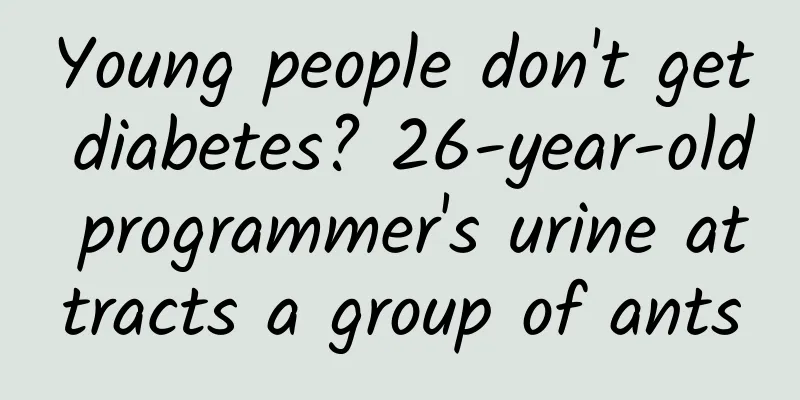Why can't you remember things before the age of three? Scientists explain

|
Have you ever had this experience? At a family gathering, the elders asked you with a smile: "Do you remember the funny things you did when you were a kid? How about using lipstick to paint your face?" And you often shook your head in confusion, muttering to yourself: "I really don't remember those things!" In fact, almost everyone has a vague memory before the age of three, and the brain seems to intentionally "delete" this early memory. What secret is hidden behind this? Childhood fog linked to brain development Psychologists call the inability to remember things before the age of 3 and the incoherent memory between the ages of 3 and 7 "childhood amnesia." Although each person's specific situation is different, almost everyone is affected by this phenomenon to some extent. To solve this mystery, we must first understand the hippocampus, a delicate structure located inside the temporal lobe of the brain, which is a key area for memory formation and storage. In infancy, the hippocampus is like a fledgling "intern" and is unable to handle the task of long-term memory. It is only around the age of 4 that the hippocampus gradually "becomes regular" and begins to steadily record our life stories. In addition to the hippocampus, our visual system is also lagging behind. Newborn babies have extremely poor vision, and the world looks like a blurry ink painting to them. As they grow older, their vision gradually improves, and colors and details become clearer. The formation of memory depends largely on visual information. Therefore, when our vision is not fully developed in infancy, our memories are naturally fragmented. Another factor that cannot be ignored is the formation of self-awareness. Before the age of one, we do not have a clear concept of "self", cannot distinguish between ourselves and others, and do not understand "past" and "future". This lack of self-awareness makes it difficult for us to transform our experiences into a series of timelines and milestones in real life, thereby establishing a retrieval structure that is conducive to recall. The Art of Forgetting You may ask, if these memories are so precious, why does the brain want to forget them? This is actually a self-protection mechanism of the brain. From birth to about 2 years old, the brain is like a sponge, madly absorbing all kinds of information from the outside world. This information is stored in the brain in the form of synapses, gradually forming a dense "memory network". If all this information is retained without screening, the brain will become like an overloaded computer and run slowly. Forgetting the past is to make the brain work better. Memory depends not only on the number of neurons, but also on the connections between neurons. The synapses in the brain first develop rapidly, reaching their peak at around 2 years old, and then simplifying them, gradually clearing out those unimportant and infrequently used memories. In this way, the brain becomes more efficient and makes room for new learning and memory content. Unforgotten love and growth Although things that happened before the age of 3 may have been forgotten, the feelings and impacts left by those experiences are deeply imprinted in our hearts. Do you still remember the joy you felt when you first learned to walk and ride a bike? Although the specific images are blurred, the sense of accomplishment accompanies us as we grow up. These skills are stored in the cerebellum and basal ganglia and become part of our bodies. The close interactions with parents in childhood, the fear and comfort when injured, these emotional experiences are retained in emotional centers such as the amygdala, shaping our interpersonal relationships, emotional regulation, and ability to cope with stress. In the process of getting along with our family, we gradually form our own cognition, including personality, interests, values, etc. Maybe one day in the future, when you become a parent and start taking care of your own baby, those forgotten times will suddenly come back to mind... (The author Wang Mingyu is the attending physician of the Department of Neurosurgery of the First Hospital of Shanxi Medical University and a member of the Health Communication Working Committee of the Chinese Medical Doctor Association) |
<<: Eating the wrong oil may promote breast cancer? Which cooking oil should I choose?
Recommend
The efficacy and contraindications of Di Ding
Ground clover is a traditional Chinese medicinal ...
Chinese herbal medicine red peony root
When using red peony root to treat diseases, it i...
Tmall: The number of new merchants on the Tmall platform will increase by 83% year-on-year in 2024, and 733 brands will have an annual turnover of more than 10 million
Tmall released the 2024 Merchant Store Opening Re...
The strange metal that is "both strong and flexible" makes it possible to build super-strong artificial muscles for transformable aircraft and robots!
Author: Li Chuanfu Shi Xiangqi With the rapid dev...
The efficacy and function of ground rose
What are the functions of ground rose? As a tradi...
The efficacy and function of Xiaotongcao [picture]
There are many kinds of common Chinese herbal med...
Not the Onion, but bumblebees are really becoming a fish in California!
Starting from May 31 this year, four species of b...
Why does the brain delete memories before the age of 3? What did you see when you were a child?
One minute with the doctor, the postures are cons...
Beware! These fruits on the roadside are poisonous, don't eat them! Be especially careful if you have children at home
Winter is here, and it is the season for bright r...
Hehe, who is not a "dragon"?
Author: Black-scaled Cockscomb Snake Former senio...
Jasmine's Benefits
Speaking of jasmine, I believe many people will t...
Do older people who play these games regularly have a lower risk of dementia?
In 2022, 55 million people worldwide are living w...
The efficacy and function of bamboo root
Many people know that the roots of the bamboo sho...
What is the medicinal value of the line column orchid
The thread-column orchid is a wooden vine, 4 to 5...









